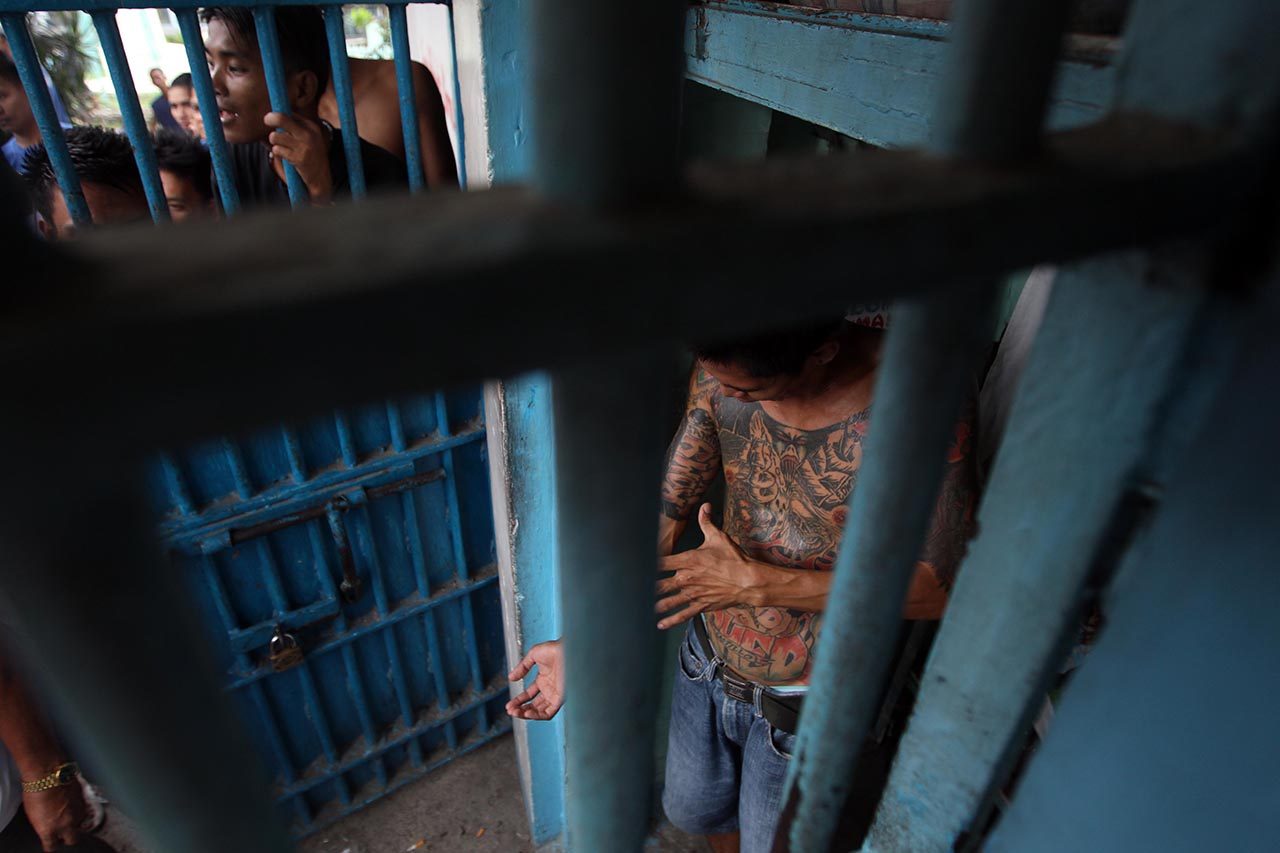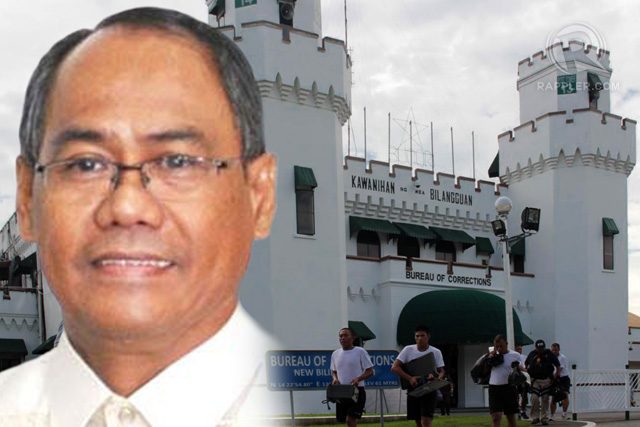SUMMARY
This is AI generated summarization, which may have errors. For context, always refer to the full article.

Prison issues have far reaching implications to our lives as citizens in a country. If we appoint the wrong people at the helm of the prison bureaucracy, it could lead to a mockery of our justice system. Clarke Jones, my fellow researcher from Australia, and I wish to share you our thoughts in order to contribute meaningfully in the selection process of the new BuCor Director. As a concerned citizen, we need to have our collective voices heard.
The recent resignation of Franklin Jesus Bucayu as the Director of the Bureau of Corrections (BuCor) is a major setback to the efforts to reform the Philippine correctional system. Based on our on-going ethnographical research into the Philippines correctional system, we provide the following insights and suggestions for his replacement.
Despite many problems besetting the BuCor, like cell overcrowding, inadequate prison facilities, low staff morale, corruption, and a cynical public, Director Bucayu overcame these obstacles to lead the BuCor forward. Prior to his appointment in 2013, many of the previous reform efforts made by others had been ineffective, unsustainable, and only temporarily.

Arbitrary leadership
In his short two-year stint there, he accomplished many things. Some of these include guiding the passage of the Implementing Rules and Regulations (IRR) of the Modernization Law of the BuCor, standardizing prison operations (that had previously been haphazardly implemented), and cracking down and facilitating the transfer and isolation of drug trafficking inmates out of New Bilibid Prisons (NBP) to curb their lucrative prison drug operations. Many of these problems in the past have led to endemic corruption within BuCor.
Despite the Director’s best efforts to reform BuCor’s prisons, a crack down on the drug trade resulted in threats to his life and subsequent rise in his stress levels. Contributing to his stress, misinformed media falsely vilified him as a criminal to be punished himself – these were very much misguided.
His resignation means that there have been 6 different Directors appointed (permanent and temporary) over the last 5 years. This frequent and arbitrary change of prison leadership has had far-reaching implications for BuCor management. Each time a new director has been appointed by the Secretary of the Department of Justice (DoJ) and/or the Office of the Philippine President, the new incumbent has selected a fresh prison management team that he or she feels are personally trustworthy and loyal. The new management team has subsequently appointed a different set of prison superintendents in an attempt to increase security and reduce corruption.

Opportunity
Its likely that the new head, if not selected carefully, will be no different and will introduce their own new policies and practices based on their vision of correctional management, despite them probably not initially having this knowledge or expertise.
Because of the instability in the BuCor leadership structure, feelings of uncertainty, mistrust and insecurity have become embedded in the inmates’ psyche. These feelings have all combined to reinforce the inmates’ dependence on inmates coping mechanisms, such as the formation of the mayores, talipapa (open market), kubol (cubicle), and prison gang system. These have translated into a prison community where inmates share in the management of the prison, which have both short-term positive and long-term negative ramifications.
The soon to be appointed ‘Director-General’ of the BuCor will have a full 6-year term as mandated in the Modernization Law of 2013. Despite the unfortunate resignation of Director Bucayu, this should be seen as an opportunity to continue to move the BuCor forwards. The new incumbent will be tasked to administer the implementation of the modernization law and to supervise the transfer of the NBP inmates to a modern facility in Laur, Nueva Ecija.
The DoJ and the Office of the President should make sure that the ideal leader be appointed. Top-level officials should be able to model the appropriate behavior to inspire change among stakeholders (prison staff and inmates).
Ideally, the new Director-General should have a background in correctional management. Additionally, qualifications like psychology, social work, criminology/penology, education, and related fields, would also be an advantage. Prison administrators should also have at least 3 years of experience in dealing with offenders and be familiar with the causes of crime and interventions to criminal behavior. Someone with a grasp on the classification, programming, and housing of inmates should also be a preferred candidate.
The previous practice of appointing lawyers, former military, and police leaders to the directorship typically had limited backgrounds in correctional management. This practice should be reconsidered due to its inherent negative outcomes. Their appointments have stemmed from the mistaken notion that correctional security/management is the same as in legal, police, and military fields. However, managing and reforming prisoners requires a different skill-set, training, and competencies than is required for investigating, arresting, and prosecuting offenders.
Rehabilitation
While some former Directors with legal, military, and police backgrounds did their best to lead the BuCor forward, it took a while before they fully comprehended the intricacies of running prisons, particularly NBP. They realized belatedly that prisons are not barracks or garrisons, and their clients are so-called criminals or militants’ that require rehabilitation and not subordinate officers requiring discipline. Many have failed to see the difference.
As most previous Directors have not had a working knowledge of correctional management, they have had to learn on the job. For many, it was too late by the time they finally understood the dynamics of effective prison management and reformation. Given the intricate dynamics involved in these areas, the good intentions of many past Directors were usually manipulated by the self-serving interests of some long serving personnel in the BuCor organization. These dynamics translated to a lack of interest to fundamentally reform the prisons and to high levels of cynicism among correctional officers and inmates.
While the resignation of Director Bucayu is an unfortunate setback to prison reform, the momentum he created to improve staff and inmate welfare and improve prison conditions must be maintained by the new incumbent.
The DoJ will need to weed out those that see the vacancy as an easy means of acquiring wealth. The majority of BuCor staff is diligent and well-intended but require s strong leader who will not succumb to corruption – much like former Director Bucayu. We will sorely miss him. – Rappler.com
Clarke Jones holds a PhD from the University of New South Wales (Australia). Before moving to academia, he worked for the Australian Government for 15 years in several areas of national security. His current research interests include prison gangs and the effects of the prison environment on the disengagement and de-radicalization of terrorist inmates in the Philippine corrective system.
Raymund E. Narag, PhD, is Assistant Professor in Southern Illinois University Carbondale. His research interests focus on comparative criminology, corrections, and the role of culture in the criminal justice system. He also advises the Philippine government in its efforts to modernize the correctional system.
This piece was originally posted on Raymand Narag’s Facebook account.
Add a comment
How does this make you feel?
There are no comments yet. Add your comment to start the conversation.